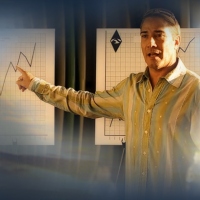Programing is important enough to pay a lot of attention to. And there is a lot of information about it. And the facts all add up to no matter how many programs you have, each one consists of certain parts. And if you don’t assemble those parts and run the program in an orderly fashion, then it just won’t
If you don’t know these facts of life, here they are:
Maxim Two: A program, to be effective, must be executed.
Maxim Three: A program put into action requires guidance.
Maxim Four: A program running without guidance will fail and is better left undone. If you haven’t got the time to guide it, don’t do it; put more steam behind existing programs, because it will
Maxim Five: Any program requires some finance. Get the finance into sight before you start to fire or have a very solid guarantee that the program will produce finance before you execute it.
Maxim Six: A program requires attention from somebody. An untended program that is everybody’s child will become a juvenile delinquent.
Maxim Seven: The best program is the one that will reach the greatest number of dynamics and will do the greatest good on the greatest number of dynamics. (A
Maxim Eight: Programs must support themselves financially.
Maxim Nine: Programs must accumulate interest and bring in other assistance
Maxim Ten: A program is a bad program if it detracts from programs which are already proving successful or distracts staff people or associates from work they are already doing that is adding up to successful execution of other programs.
Maxim Eleven: Never spend more on a program than the income from one person signing up can repay.
Maxim Twelve: Never permit a new program to inhibit the success of a routine one or injure its income.
Programing requires execution. It requires carry-through. It requires judgment enough to know a good program and carry it on and on and to recognize a bad one and
Programs extend in time and go overdue to the extent the various types of targets are not set or not pushed home or drop out. They fail only because the various types of targets are not executed or are not kept in.
You can get done almost anything you want to do if types of targets are understood, set with reality, held in or completed.
One can readily accomplish the intended goals either for himself or for his group by adherence to good, steady programing that wins.
This is the way to make planning an actuality, to achieve goals. It is as true for an individual as it is for a large group. All people can benefit from this
become stimulated or initiated (of an interest, activity, etc.).
a concisely expressed principle or rule of conduct, or a statement of a general truth.
be a complete failure; fail.
an urge to survive along a certain course; an urge toward existence in an area of life. There are eight dynamics: first, self; second, sex and the family unit; third, groups; fourth, Mankind; fifth, life forms; sixth, physical universe; seventh, spirits; and eighth, Supreme Being.
because or as a result of; by reason of.
stop working on or let go of (something) suddenly, as quickly as one would let go of an object as unpleasant or potentially dangerous as a freshly made brick, one that has just been baked in a hot oven.
the methods of application of an art or science as opposed to mere knowledge of the science or art itself. In Scientology, the term technology refers to the methods of application of Scientology principles to improve the functions of the mind and rehabilitate the potentials of the spirit, developed by L. Ron Hubbard.
